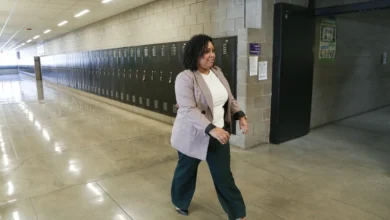Back-to-School Health Checklist: What Every Parent Should Know

As families prepare for a new school year, the focus often falls on supplies, uniforms, and schedules. But one of the most important back-to-school essentials is often overlooked: your child’s health. Whether your child is starting kindergarten or stepping into high school, a strong start requires attention to physical, mental, and emotional well-being.
This week’s Focus of the Week highlights the key health checks and practices every parent should prioritize before school resumes.
Schedule a Back-to-School Wellness Visit
An annual checkup is about much more than vaccinations or sports physicals. During these visits, providers assess growth, blood pressure, vision, hearing, developmental milestones, and mental health. Immunizations are reviewed, ensuring your child is protected against preventable illnesses.
If your child hasn’t had a wellness visit in the past year, now is the time to schedule one.
Keep Vaccinations Up to Date
Vaccinations are vital, not just for school compliance, but for long-term health. Schools commonly require vaccines such as DTaP, MMR, polio, varicella, hepatitis B, and, for older students, Tdap and meningococcal vaccines. Parents should pay special attention if their child is entering kindergarten, seventh grade, or college, as these milestones often require updated immunizations.
Re-establish a Healthy Sleep Routine
Summer nights often stretch late, but school success starts with quality rest. Younger children need 9–12 hours of sleep, while teens require 8–10 hours. Begin shifting bedtimes one to two weeks before school starts, reduce evening screen time, and maintain consistent bedtime routines.
Nutrition Matters Every Day
Breakfast fuels learning. Children who eat protein-rich breakfasts and balanced meals perform better academically and have fewer sick days. Parents should emphasize fruits, vegetables, whole grains, and water over sugary snacks and drinks.
Mental Health: Watch for Warning Signs
The start of a school year can bring excitement, but also anxiety and stress. Look for changes in mood, withdrawal, sleep patterns, or emotional behavior. Early conversations with a healthcare provider can help address concerns.
Vision and Hearing: Essential for Learning
Children may not always recognize vision or hearing problems, but these issues directly impact classroom performance. Squinting, turning up the volume, or seeming inattentive could be signs of undiagnosed issues. Annual screenings are a critical safeguard.
Stay Ahead on School Forms and Medications
If your child requires medication, has asthma, allergies, or a chronic condition, update their care plan with the school nurse before classes begin. Bring all necessary forms to your wellness visit to save time. Also, ensure your child knows how and when to take their medication, and double-check that the school has current emergency contacts.
Safety Beyond Health: Travel, Backpacks, and Bullying
-
Safe Travel: Review school bus, biking, and walking safety rules. Practice routes in advance and ensure seat belts or booster seats are correctly used in cars.
-
Backpack Safety: A backpack should weigh no more than 10–20% of your child’s body weight. Always use both straps to avoid strain.
-
Preventing Bullying: Stay engaged with your child’s school life. Encourage open communication and let them know when and how to seek help if needed.
Final Word
Back-to-school readiness is about ensuring children are healthy, safe, and supported. From wellness visits to sleep routines and emotional health, the right preparation can set your child up for a successful school year. Parents are the first line of defense in protecting and strengthening children. A little planning now makes a big difference later.





